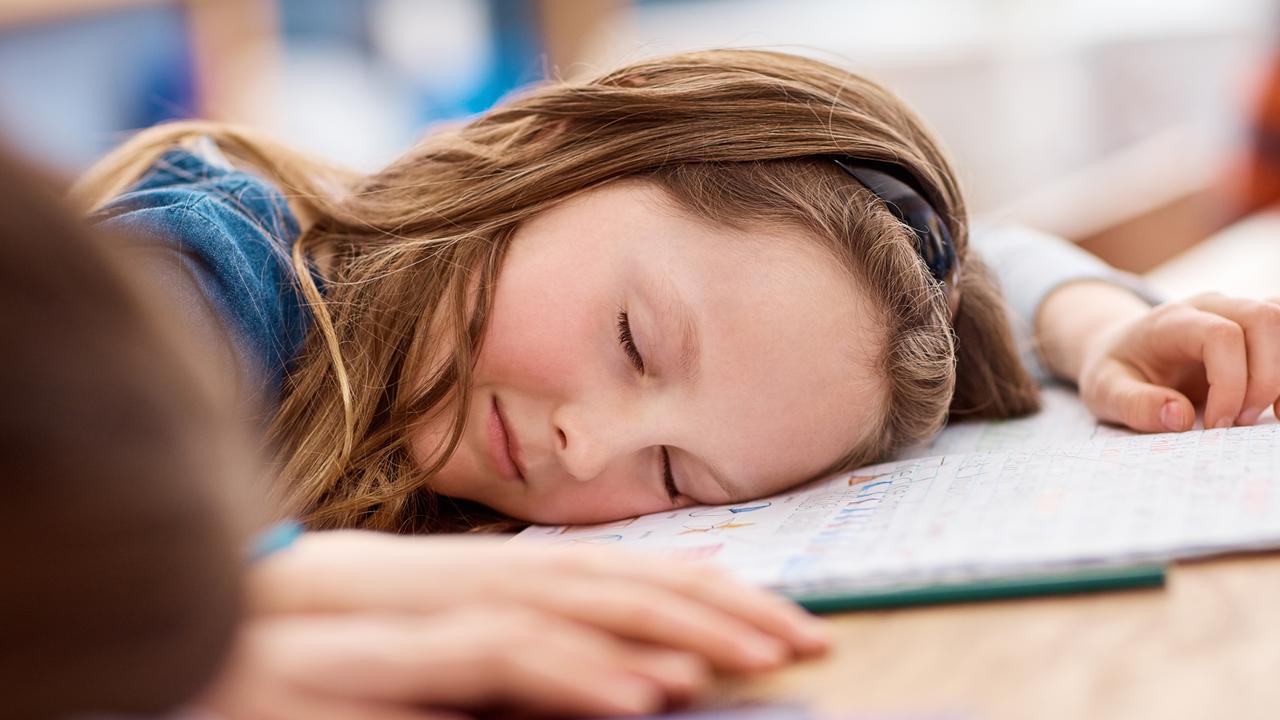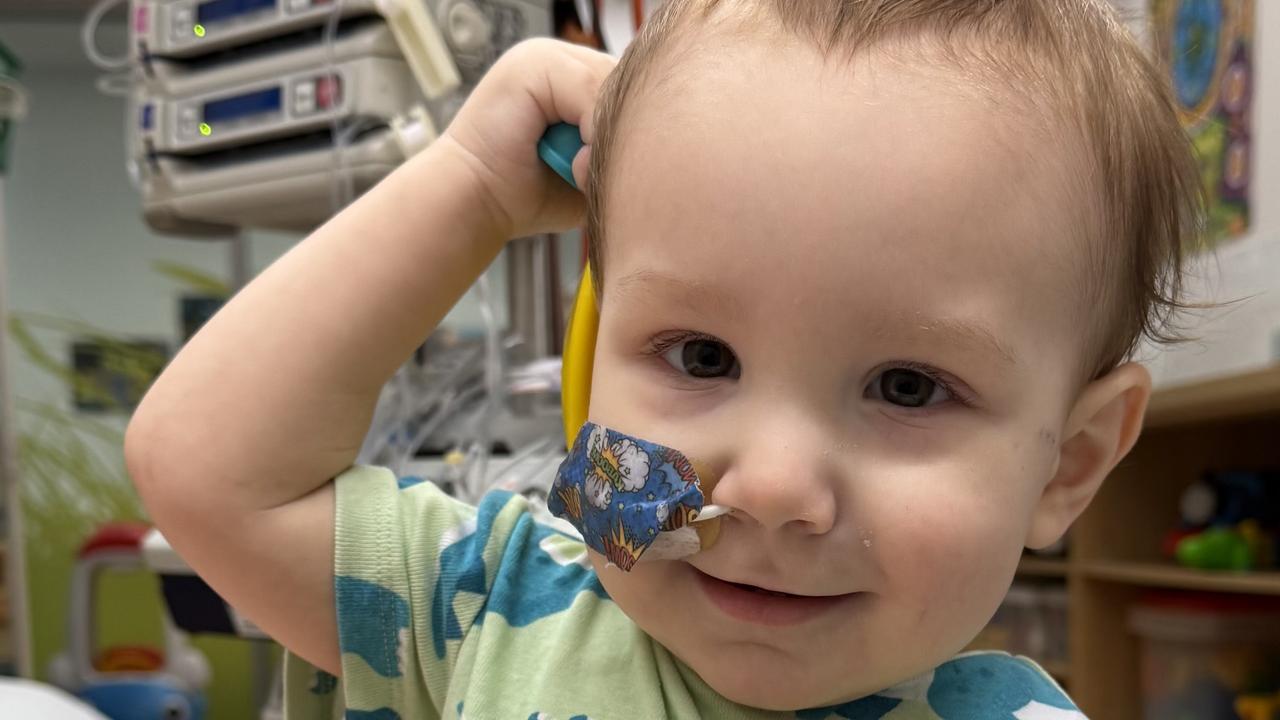Secrets to a great night’s sleep revealed
With just one in three of us getting enough sleep each night, experts have weighed in on several things you need to stop doing before bed.

Health
Don't miss out on the headlines from Health. Followed categories will be added to My News.
One in three Australians aren’t getting the recommended seven to nine hours of sleep needed each night, and even more of us are reporting getting such a poor quality of sleep it is impacting our lives.
Body+Soul’s annual Health of the Nation surveyed more than 3000 Australians, asking some of the biggest questions around health and wellbeing. And while general health remains a priority for the large majority of Australians, it seems sleep is falling through the cracks.
The average number of hours Aussies spent per night fell by 11 minutes last year to six hours and 46 minutes, with the proportion of respondents reporting between five and six hours of sleep per night rising by five per cent since the start of 2024.
But it’s not just the lack of hours where Aussies can improve, with two in three reporting suffering from a lack of quality sleep. This bumps up to 74 per cent when you exclude Boomers.
One in four reported their performance and focus at work being negatively affected at least two to three times a week from a lack of quality sleep. But an equal one in four people report doing nothing to improve this.
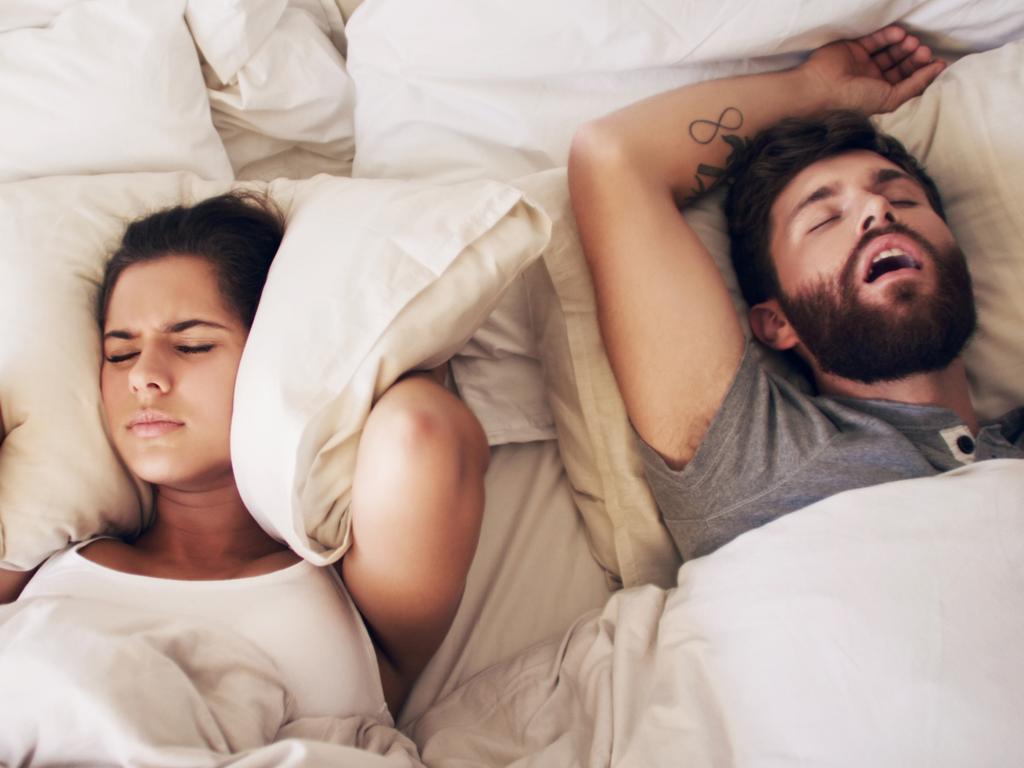
When respondents were asked about the measures they implement to improve sleep time and quality, 35 per cent said they choose to avoid caffeine close to bedtime, while 23 per cent avoid alcohol before bed.
Also high up on the list for improving sleep was maintaining a regular sleep schedule, with 29 per cent of respondents going to bed and waking up at consistent times.
Only seven per cent have sought medical advice or treatment in relation to issues with sleep.
Body+Soul has teamed up with health and wellness advocates Laura Henshaw and Steph Claire Smith, who founded the wildly successful health and wellness app Kic, to offer readers who sign up before March 3 four weeks free access to the app.
On top of access to the entire app’s offering, Kic has created a bespoke Health of the Nation challenge, consisting of three weekly workouts that range from five to 20 minutes.
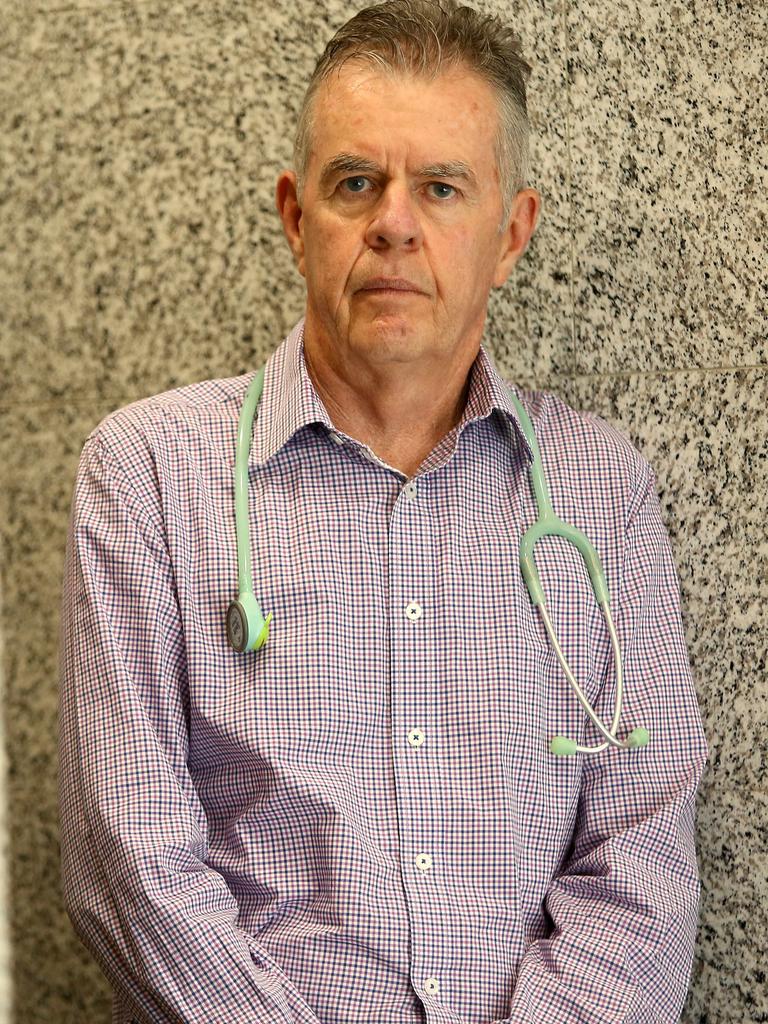

To help you get the perfect night’s sleep, we asked sleep experts Dr Chris Seton and Professor Delwyn Barlett from the Woolcock Institute of Medical Research on what the minimum amount of sleep is needed for each age group.
O-5 – EARLY YEARS
Sleep at this stage of life is integral for development, but the wide variation in sleep duration and patterns can be confusing for parents. On average newborns can sleep anywhere from 14 to 17 hours per day and once they hit the four-month mark the average drops to between 12 and 16 hours a day.
“A four-month-old child may sleep 14 hours and another equally healthy baby may sleep 19 hours,” The Children’s Hospital at Westmead’s Pediatric and Adolescent Sleep Physician Dr Chris Seton said.
Here are the most common sleep issues for these ages and how you can combat them.
YOUR BABY SLEEPS THROUGH THE DAY AND CRIES THROUGH THE NIGHT
The Problem
Sleep patterns for young children can be extremely erratic and are a normal part of development. Often babies will sleep like a vampire during the day and cry out for their parents in the middle of the night. Dr Seton said at this pre-verbal stage sometimes crying isn’t necessarily indicative of discomfort or pain but rather a means of communication.
The Solution
The general principle should be “to not reward the waking”, Dr Seton said. “Whenever we give our child cuddles, or milk or affection when they wake up in the middle of the night we are actively rewarding that behaviour.”
His recommendation is to go check on the baby or toddler, but not to actually do anything until their crying dissipates.
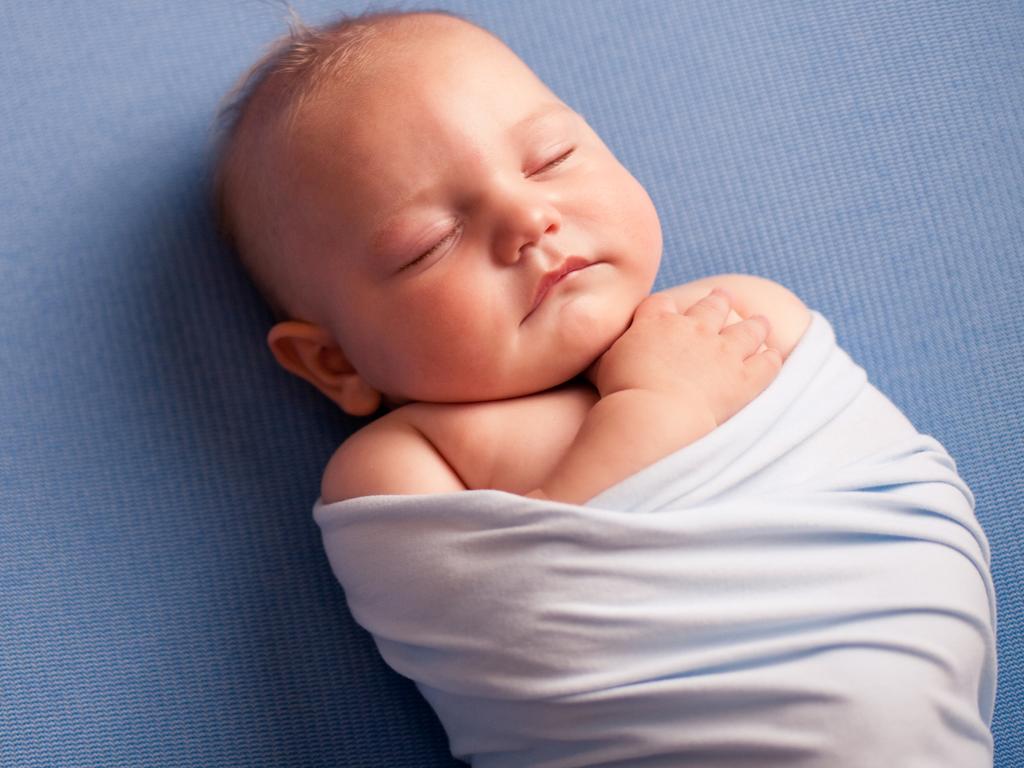
YOUR CHILD IS WAKING YOU UP THROUGHOUT THE NIGHT
The Problem
As children move into that preschool stage, they become far more mobile and may begin to wake in the middle of the night. Dr Seton said this stage between ages three and four is generally the peak of problems as children graduate from their cot to a real bed.
The Solution
“When I’m asked the question how do you keep a three-year-old in their bed at night, my response is ‘I have no idea’,” Dr Seton said. Something you can try is developing a “hall pass” system that rewards your child for staying in bed throughout the night, but getting these to stick can be tricky.
YOUR CHILD IS SCARED
The Problem
It is incredibly common for children to wake up at night with anxieties about a range of things from nightmares. Dr Seton said a lot of these fears are picked up from media consumed by kids on the TV or smart devices.
“They absorb the information but they can’t maturely process it,” Dr Seton said.
The Solution
Subjecting your child to long lines of questioning can at a point become counter-productive. Instead Dr Seton recommends addressing the child’s safety concerns directly. “Whether that’s physically going and checking doors, or installing a low wattage lamp if your child has a fear of the dark,” he said.
6-12 – PRIMARY YEARS
As children enter their schooling years, sleep becomes critical for learning and development. Children during these years should be sleeping between nine and 12 hours per day, allowing them to fully recover for school the next day.
Often their schedules become far busier, and the demands placed on them in terms of school, sport and extra-curricular activities increase dramatically. Additionally the introduction of mobile phones and screen time around this age can wreak havoc on a child’s sleep schedule if not managed. Dr Seton emphasises how important it is to build healthy sleeping habits during these years.
Here are some of the more prevalent issues for this age group and how to address them.
SCREEN TIME KEEPS YOUR KID UP
The Problem
The introduction of smart devices including phones and computers is common around this age group, but they can sabotage your child’s sleep.
“There are several issues related to screen use before bed,” Dr Seton said. “You have the blue light effect, but you also have the brain developing a relationship between the screen which is neuro-chemically exciting and the bed.”
The Solution
As a general rule, Dr Seton recommends children don’t do anything on their bed that isn’t sleep related. This ensures the brain associates the bedroom and the bed with sleep.
Another good tip is to turn the light off straight away when hopping into bed, so the brain also associates darkness with the sleeping process.

INSOMNIA AND NIGHT TERRORS
The Problem
An increasingly common form of insomnia is what Dr Chris Seton called “conditioned insomnia”, where the brain has dissociated sleep from the bedroom environment. This could be due to excess phone use, gaming or a multitude of activities kids tend to do in their bedrooms. Night terrors are also common in kids in this age bracket.
The Solution
The management of night terrors is actually the opposite of what comes intuitively to parents. “Instinctively when your child is screaming you want to pick them up and comfort them but this can potentially make the night terrors more aggressive,” Dr Seton said
“It’s not a bad dream, they will have no memory of the events, so that’s what I reinforce to parents.”
High temperatures, irregular sleep patterns and more specific issues like general anaesthetic or concussions can increase the occurrence of night terrors.
For insomnia, a pediatrician can recommend treatment options for specific cases.
YOUR CHILD’S SCHEDULE IS INCREASINGLY HECTIC
The Problem
The schedule of some children becomes increasingly packed with schoolwork, sport, music and other extra-curricular activities on top of family commitments.
“That’s tiring by itself, when kids should be getting more sleep they are actually getting less as a result of their daytime activities,” Dr Seton said.
“The only time that your sleep requirement plateaus is in your teenage years, so an 18-year old’s sleep requirement is the same as that of a 12 year old.”
The Solution
The solution ultimately comes from both teachers and parents looking out for signs that kids aren’t coping with their schedules and are sacrificing sleep as a result.
“When we talk to schools they agree that they’re over-scheduled but that they only do it because parents want it. But then you talk to parents and they say ‘of course we don’t want our kids doing too much’,” Dr Seton said.
YOUR CHILD IS SCARED
The Problem
It is incredibly common for children to wake up at night with anxieties about a range of things from nightmares about break-ins to fears of fire burning down the house. Dr Seton said a lot of these fears are picked up from watching TV or using smart devices.
“A few years ago when the bushfires were around Sydney we saw a lot of kids having fears about the bushfires burning their homes down,” he said. “They absorb the information but they can’t maturely process it.”
The Solution
“Often nightmares are associated with a psychological or mental health problem, but they’re not, it’s a normal part of childhood,” Dr Seton said.
“But if a child is having consistent monothematic nightmares, then some of those kids may benefit from seeing a sleep psychologist.”
13-19 – TEENAGE YEARS
Adolescence is tricky enough to navigate at the best of times, add hormonal changes, as well as shifts to your internal body clock all while trying to fit in eight to 10 hours of sleep in between, school, sport, friends and family, it’s virtually impossible.
Delayed sleep phase is extremely common in teenagers this age, meaning their internal body clock is keeping them up later but rigid school schedules are waking them up earlier.
Here are some of the major issues that affect sleep for this age group and how to tackle them.
SCROLLING ON YOUR PHONE KEEPS YOU UP
The Problem
Social media provides a sea of content to scroll through, and it’s all just a tap away. So it’s not surprising so many teenagers are sleep-deprived, staying up for long periods of time on their phones.
“There are several issues related to screen use before bed,” Dr Seton said. He said when this becomes conditioned, and a young person lies on their bed, their brain becomes excited it effectively counter poses sleep.
The Solution
As a general rule Dr Seton recommends teenagers don’t do anything on their bed that isn’t sleep related. This ensures the brain associates the bedroom and the bed with sleep.

YOUR SCHEDULE IS INCREASINGLY HECTIC
The Problem
As with those in the six to 12 age group, the schedule for teenagers becomes increasingly packed with schoolwork, sport, music and other extra-curricular activities on top of family commitments.
The Solution
As with the six to 12 age group, Dr Seton said the solution ultimately comes from both teachers and parents looking out for signs that kids aren’t coping with their schedules and are sacrificing sleep as a result.
DELAYED SLEEP PHASING
The Problem
About half of all teenagers have this delayed sleep phase according to Dr Seton, where their circadian rhythm has them going to bed late and waking up late. However this is a normal part of development.
The Solution
The answer is later start times for schools, which has gotten some serious traction across US schools. However, Dr Seton estimates of the 100 Australian schools he spoke to about this he has convinced just two to delay their start times.
In the meantime Dr Seton recommends getting sunlight first thing in the morning, which can lower your melatonin levels.
YOU DRINK CAFFEINE IN THE AFTERNOON
The Problem
Energy drinks and large doses of caffeine have become readily accessible to teenagers, often being used to “keep them going throughout the day” as they become more sleep-deprived.
Caffeine can stay in the body for up to 10 hours, so consuming multiple coffees or energy drinks late in the day can make it more difficult to fall asleep.
The Solution
Dr Seton recommends limiting your caffeine intake to an appropriate level for you, and consuming your energy drinks or coffees before midday to avoid complications with sleep.
20-40 – ADULTHOOD TO EARLY MIDLIFE
The recommended amount of sleep through your 20s and 30s is between seven and nine hours, but naturally life tends to get in the way leaving your sleep habits as an afterthought.
Experts say keeping a routine sleep schedule is important, but waking up at a consistent time, even on weekends, is the key to building healthy sleeping habits and waking up feeling refreshed.
Here are some of the main sleep issues faced by this age group and how you can address them.
YOUR SCHEDULE IS SCATTERED
The Problem
Balancing work, university, social life and in the later stages of early adulthood, children means people in their 20s and 30s have incredibly scattered sleep schedules. Without a routine and a consistent wake up time, falling asleep can become incredibly difficult.
The Solution
Psychologist and Insomnia Specialist Professor Delwyn Bartlett said having a consistent wake up time is far more important than going to bed at a regular time.
“Going to bed at a regular time does not ensure you go to sleep, getting up at a regular time ensures you reset your sleep wake pattern to match your environment,” Prof Bartlett said.
“Delaying your wake up time often causes that horrible jet-lagged effect” meaning you will ultimately feel more tired in the mornings and more awake at night”.

INSOMNIA WITH NO CLEAR CAUSE
The Problem
People with insomnia experience persistent difficulties falling or remaining asleep to the extent that their daytime activities are affected. It can strike at any age with common causes including stress, changes to routine or family history.
The Solution
Prof Bartlett said it’s important to determine the difference between time spent in bed and time spent asleep.
“The most effective behavioural intervention is to reduce the amount of time you spend in bed, it’s definitely hard but it works,” she said.
So if you get into bed and your brain starts working overtime, get up and go sit in another room, go make a cup of herbal tea but do not stay in bed.
DRINKING AFFECTS YOUR SLEEP
The Problem
Alcohol consumption will have you nod off quickly but it will also fragment your sleep, meaning the quality of your sleep is bound to take a hit.
“For people who find themselves relying on alcohol or recreational drugs to get to sleep, that is a big problem,” Prof Bartlett said.
“However it’s important not just to say ban everything, people are affected in different ways by different things.”
The Solution
Understanding how alcohol affects your sleep personally is the most important thing. Keeping track of nights where you consume alcohol and the quality of your sleep may help pinpoint exactly how much of an effect alcohol actually has.
YOU CARRY YOUR STRESS TO BED
The Problem
Sleep is a continuation of the day’s events. It’s not separate. Naturally we carry the day’s anxieties and worries with us when we go to bed.
The Solution
One way to address this is to take time before you go to bed to address some of these worries and concerns, whether that is jotting down a to do list or just a summary of some of the things you are anxious about.
But you could also do some gentle stretching and breathing exercises. It’s not about fixing those stresses but if you practice letting go of those thoughts just for a couple of hours of sleep, your sleep time and quality will improve.
SCREENTIME STIMULATION BEFORE BED


The Problem
Scrolling through social media or watching an action-packed TV show right before bed can definitely sabotage your sleep.
“It’s the interaction between the blue light and what you’re actually consuming, so to say that all screen time is out is not really that helpful,” Prof Bartlett said.
“Of course if you have a long period of exposure to light before bed that will have a suppressive effect on melatonin, which you want to be rising.”
The Solution
Blocking out 20-30 minutes before bed for a relaxing activity can be a great way to wind down before bed.
“It all depends on the person, I like to do a crossword before I go to bed because I end up just getting bored and switching the light out,” Prof Bartlett said.
“But my mum says if she were to do a crossword she would need to finish it before she could go to sleep so it just depends on what works for you.”
CAFFEINE CONSUMPTION
The Problem
Caffeine can stay in the body for up to 10 hours, so consuming multiple coffees or energy drinks late in the day can make it more difficult to fall asleep.
But Prof Bartlett again stresses that different people have different tolerances for caffeine, and it can affect people in different ways.
“Most people if they were to have a short black in the evening would be completely wired, but for some people they get to sleep perfectly fine,” she said.
The Solution
Generally limiting yourself to one or two coffees a day, and to have the before midday will remove any risk of sabotaging your sleep for the night.
41-50 – MIDLIFE
As we age and sleep tends to take a back seat to work and family commitments, actively practising positive sleep habits becomes incredibly important. You should still be aiming for more than seven hours of sleep a night. And unfortunately there’s no shortcuts to getting good sleep. Dealing with more specific issues like Perimenopause and sleep apnoea can also present challenges.
Here are the main issues facing adults in their midlife and how to address them.
PERIMENOPAUSE BEGINS TO DISRUPT YOUR SLEEP
The Problem
As women’s bodies begin to transition into menopause, hot flashes can be particularly detrimental to sleep. “The temperature change is the thing that wakes you,” Prof Bartlett said.
You may start to notice these changes in your early 40s but some women may experience them as early as their mid-30s.
The Solution
“It’s something you have to get used to, being OK with throwing your clothes off and putting them back on again is important,” Prof Bartlett said. “You cannot let it ruin your life.”
Some women may undergo hormone replacement therapy which can help to manage hot flashes, and as a result improve sleep.
“There’s a lot more help around now which is fantastic,” she said.

SLEEP APNEA DEVELOPS
The Problem
Sleep apnoea results in partly or completely blocked airways during your sleep, meaning your brain sends signals to your body to wake you up briefly which restarts your breathing.
These “arousals” can happen many times throughout the night and often you’re not aware of them at all. These can seriously disrupt your sleep throughout the night leaving you exhausted during the day.
The Solution
Getting advice from a doctor is the first port of call, they may recommend you undergo an overnight sleep study to determine if you suffer from sleep apnoea.
“It is very important to get this sorted and see a medical professional, you need to get treatment that works for you,” Prof Bartlett said.
There are many treatment options to address sleep apnoea, whether that be continuous positive airway pressure or a splinting device that can be fitted by a dentist.
51-61+ – LATE MIDLIFE TO RETIREMENT AGE
As you reach the latter stages of midlife, work pressures, family stresses and uncertainty about the future as you come to the end of your career can all negatively impact your sleep.
Your sleep requirements are the same as they have been for your entire adulthood life but as Prof Bartlett puts it “thing’s just don’t work the way they used to.”
You may find yourself waking more frequently during the night to go to the bathroom, or develop sleep apnoea.
Similarly, heading into retirement age can be challenging in terms of sleeping habits. The routines developed over a lifetime of work suddenly disappear leaving a lot of time for sleep-ins. However this brings new complications. Beginning to doze off earlier and rise earlier too, your sleep requirements start to fall leaving you needing a little less rest than when you were a bright and bushy-tailed teenager.
Here are the biggest issues faced by those in late midlife to retirement age and how to address them.
MENOPAUSE DISRUPTS YOUR SLEEP
The Problem
As women’s bodies go through menopause physical symptoms can wreak havoc on sleep schedules.
Hot flushes and night sweats are experienced by more than one in two women, which can result in serious fatigue and exhaustion during the day.
The Solution
As with those going through perimenopause, Prof Bartlett said women can’t let in ruin their life.

YOU’RE GETTING UP MORE FREQUENTLY TO USE THE BATHROOM
The Problem
As you age it’s incredibly common to wake up far more frequently during the night to use the bathroom. “Nothing works as well as it used to,” Prof Bartlett said. “It’s totally normal to wake up more frequently as you age.”
And while the process is completely normal some have difficulty getting back to sleep or having their sleep interrupted so many times that it affects them during the day.
The Solution
For some, simply accepting this new normal and that waking during the night isn’t necessarily a harmful thing can ease worries.
However, if your sleep is severely disrupted by these interruptions it is worth talking to a medical professional about measures to limit the amount of times you wake up to go to the bathroom.
Originally published as Secrets to a great night’s sleep revealed





